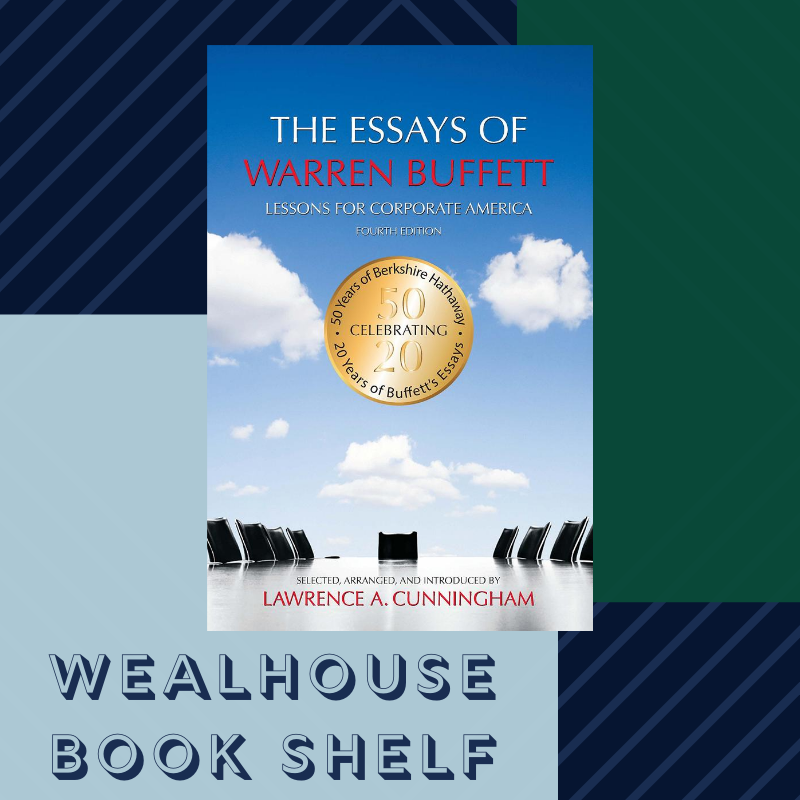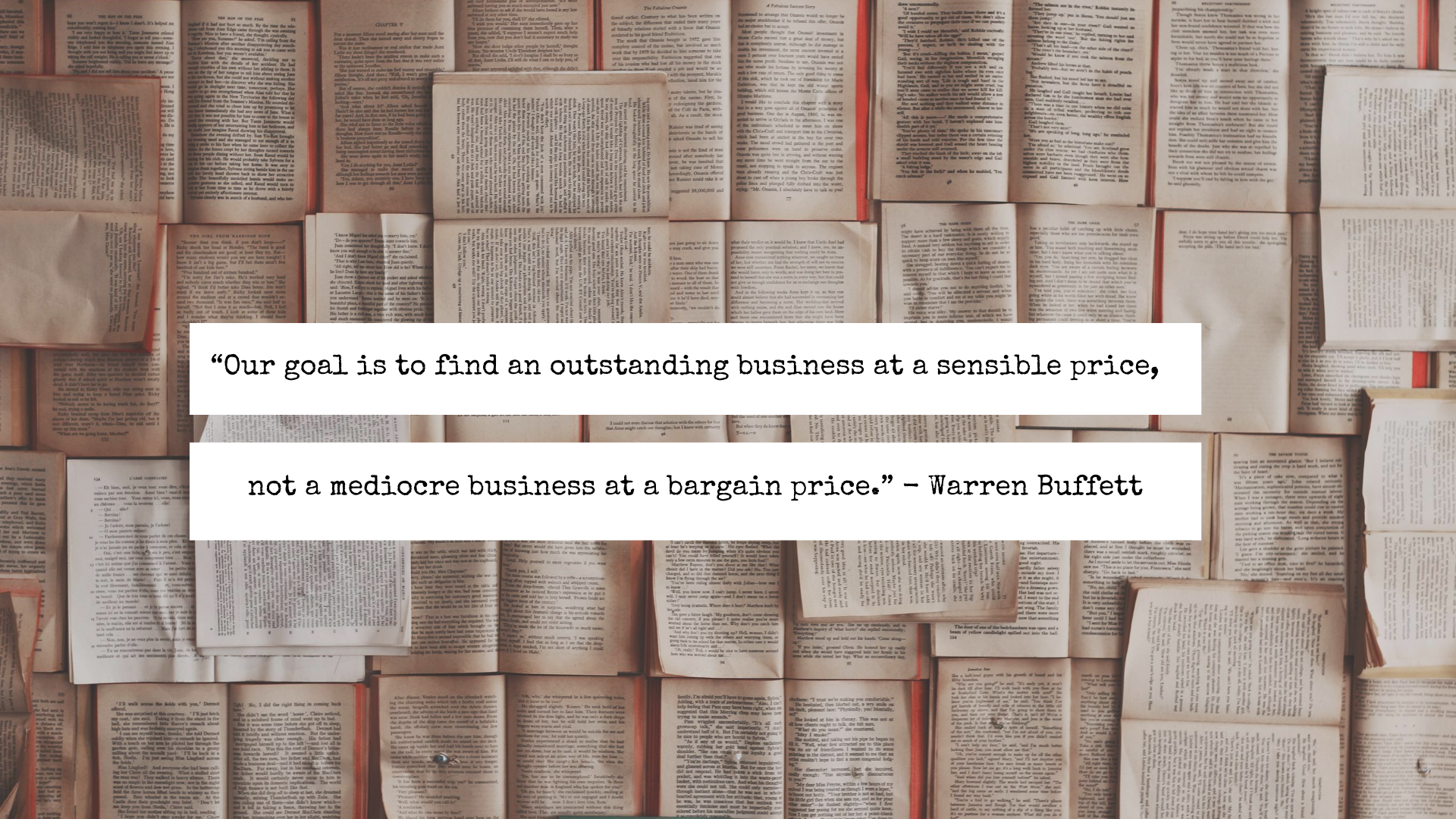Book of the Month 09-20
September 2020 – As we approach the final long weekend of the summer, CIO Scott Morrison recommends revisiting learning from the Oracle of Omaha himself.

Nearly twenty years ago, I was very fortunate to attend a Berkshire annual meeting in Omaha, Nebraska. I was accompanied by other fellow Bay Streeters as we drove by Buffett’s house, office and had dinner at his favorite steakhouse! (Fantastic steak, by the way.)
At the meeting, for over six hours, Warren Buffett and his partner Charlie Munger sat on stage and answered questions from the audience. At the lunch break of this meeting you also got to tour displays by a number of Berkshire’s private businesses such as See’s Candy, Clayton Homes, Dairy Queen, Fruit of the Loom, Geico and many others. I truly enjoyed this event and highly suggest anyone with the opportunity to attend.
I left the meeting with this excellent book that compiled his writings over past decades. Every year, Buffett pens a letter to Berkshire Hathaway shareholders. This annual letter from the CEO helps explain their investment theses and the direction of their business. Buffett comes from Benjamin Graham’s school of investing and focuses on attracting fundamentals-oriented long-term shareholders. His letters are always full of valuable insights and breadth of of wisdom. This book is a compilation of the lessons from Buffett’s annual letters between 1979 and 2006.
Wise Words
“Intrinsic value, the discounted cash flow value of the cash that can be taken out of a business during its remaining life. Though simple to state, calculating intrinsic value is neither easy or objective. It depends on estimation of both future cash flows and interest rate movements.”
“Charlie and I hope that you do not think of yourself as merely owning a piece of paper whose price wiggles around daily and is a candidate for sale when some economic or political event makes you nervous. We hope you instead visualize yourself as a part owner of a business that you expect to stay with indefinitely, much as you might if you owned a farm or apartment house in partnership with members of your family.”
“The requisites for board membership should be business savvy, interest in the job and owner-orientation.”
“Ben Graham, my friend and teacher, long ago described the mental attitude toward market fluctuations that I believe to be most conducive to investment success. He said that you should imagine market quotations as coming from a remarkably accommodating fellow named Mr. Market who is your partner in a private business. Without fail Mr. Market appears daily and names a price at which he will either buy your interest or sell you his. Even though the business that the two of you own may have economic characteristics that are stable, Mr Market’s quotations will be anything but. For, sad to say, the poor fellow has incurable emotional problems. At times euphoric and can only see the favorable factors affecting the business. When it that mood he names a very high buy-sell price because he fears that you will snap up his interest and rob of imminent gains. At other times he is depressed and can see nothing but trouble ahead for both the business and the world. ON these occasions he will name a very low price, since he is terrified that you will unload your interest on him.”
“The speed at which a business’ success is being recognized, furthermore, is not that important as long as the intrinsic value is increasing at a satisfactory rate.”
“In the Theory of Investment Value, written over 50 years ago, John Burr Williams set fort the equation for value, which we condense here: The Value of any stock, bond or business today is determined by the cash inflows and outflows – discounted at an appropriate interest rate – that can be expected to occur during the remaining life of the asset. Note that formula is the same for stocks as for bonds.”
“Leaving the question of price aside, the best businesses to own is one that over and extended period can employ larges amount of incremental capital at very high rates of return.”
“We insist on a margin of safety in our purchase price. If we calculate the value of a common stock to be only slightly higher that its price, we’re not interested in buying.”
“The most common cause of low prices is pessimism – sometimes pervasive, sometimes specific to a company or industry. We want to do business in such an environment, not because we like pessimism but because we like the prices it produces, It’s optimism that is the enemy of the rational buyer.”
